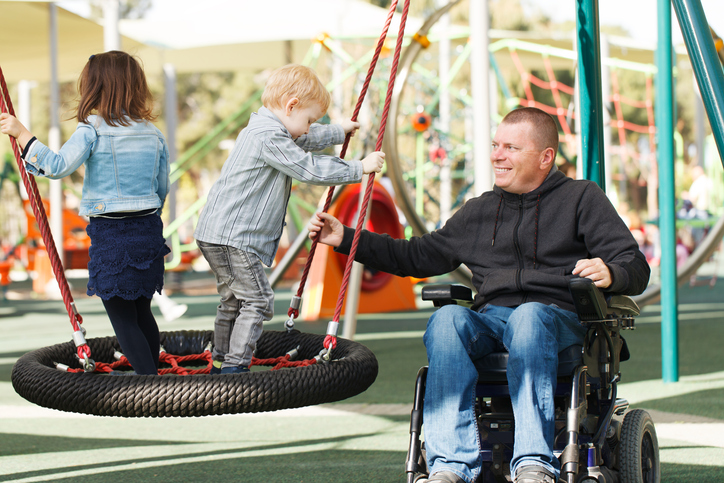Living with Chronic Pain
Learning to Parent With Chronic Pain

When a parent develops chronic pain, both the parent and their children go through an adjustment period. Children will likely experience feelings of disappointment and frustration because their parent cannot do things the way they did before chronic pain. They may experience fear because their parent is not “getting better” or needs a surgical procedure.
Parents with chronic pain often experience feelings of guilt that they cannot parent the way they once did. They may feel inadequate compared to other parents without chronic pain. They may push themselves to do too much, which can increase pain levels and negatively impact their health.
Learning to parent after developing chronic pain involves some trial and error. Some of the most important lessons include the following:
- It is okay to parent in a different way. There is no one right way to parent. Comparing parenting to others or to parenting before chronic pain will only lead to feelings of inadequacy, which is not helpful for the parent or the children. It’s important to accept that parenting may be different with chronic pain.
- Open communication helps children accept and understand the situation. Depending on a child’s age, being open about chronic pain and how it may impact the child’s life helps them adjust to the situation. Children can often tell when something is wrong, so pretending the pain does not exist is not helpful. Instead, reassuring the children that their parent will still be there for them, even if that presence looks different from before chronic pain, can help ease some of their concerns.
- Planning and balancing activity and rest are essential. While a spontaneous trip to the park may have once been the norm, it may be a recipe for disaster after developing chronic pain. Planning a trip to the park, resting the day before the outing, taking any necessary medications, and planning for plenty of rest after the outing helps ensure the experience will be enjoyable and decrease its impacts on pain or fatigue.
- Alternative activities can be just as fun. Even though a child may ask to play an active game outdoors, they may be just as happy to play a board game together indoors. Children simply need attention and connection, which can be accomplished in various ways.
- It is okay to ask for help. Parents who develop chronic pain may need more help with household chores and child care than they previously did. Asking relatives or friends for help or hiring someone (e.g., a babysitter, house cleaning service, etc.) can relieve some stress and pressure. There is no shame in asking for help when needed.
Additional sources: ScaryMommy, Psychology Today


















